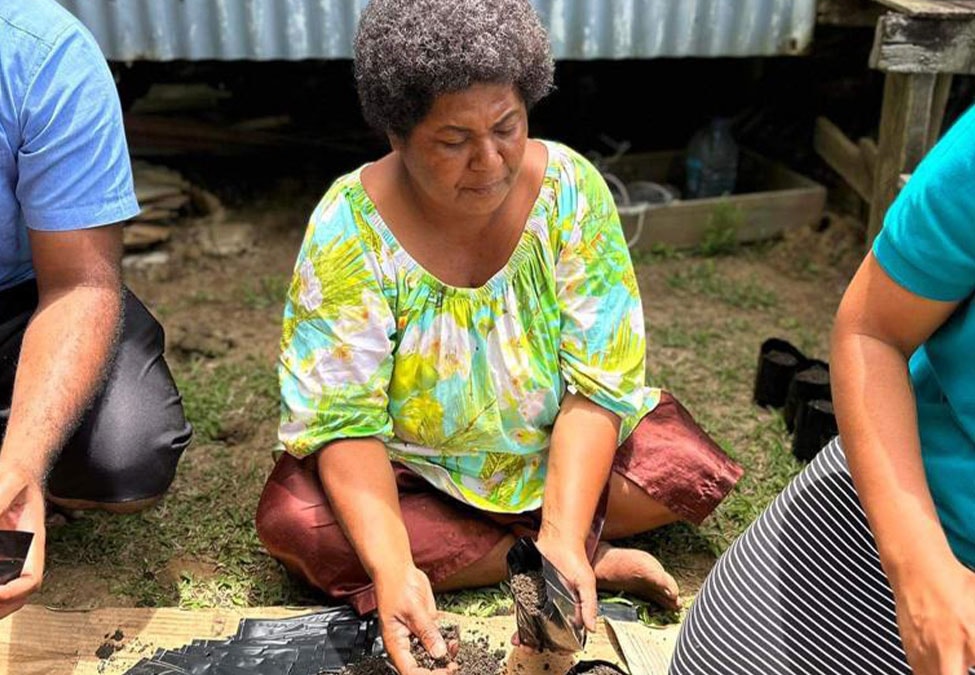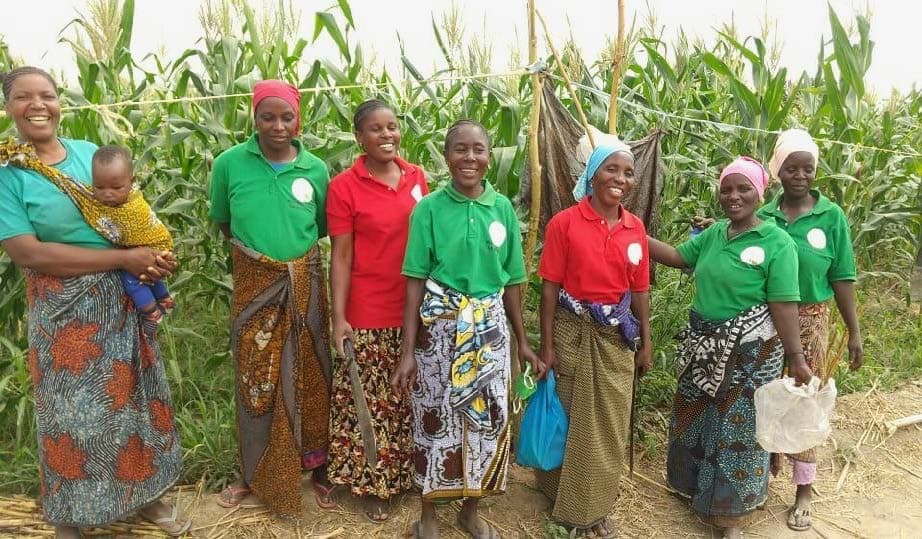In 2023, Global Greengrants gave more than $8M in agroecology and local livelihoods grants to 658 groups in 99 countries.
Agroecology is a practice and science that uses sustainable farming techniques that work with nature. It encourages communities to leverage traditional knowledge, local seed production and food consumption, and crop diversification, among other practices.
Agroecology is a core pillar of achieving environmental justice. While it is important to push back against extractive industries and unsustainable systems, like our current global food systems, it is also essential that movements are building alternative regenerative systems. Agroecology maximizes harmonious relationships among plants, animals, humans, and the environment and prioritizes socially equitable food systems.

Image Credit: iTaukei Women in Conservation
As part of our commitment to support agroecology, Global Greengrants is the fiscal sponsor of The Agroecology Fund, a multi-donor fund that supports just and sustainable food systems. This partnership fosters more connections between both organizations' networks, building stronger, more interconnected grassroots agroecological efforts globally.
In 2023, we also funded numerous grassroots groups worldwide implementing agroecological solutions including:
- Agricultural Movement in Lebanon supported local, independent farmers by promoting sustainable farming practices and marketing their products. They created the Senbleh website, an online platform for farmers to sell their goods directly to communities, thus reducing reliance on intermediary businesses.
- Assembly of the Poor organized a music festival to raise awareness about false climate solutions among residents of Thailand's urban areas. The festival connected participants directly with the natural environment and with alternative solutions through learning circles, agroecological farm visits, local foods, and music and cultural performances from activists.
- Asociación de Productores Agropecuarios Los Innovadores de Molloco in Peru revitalized ancestral cultural practices by recovering Andean terraces-an ancient agricultural technology used to cultivate crops on steep slopes, manage water runoff, and prevent soil erosion. Restoring them has been critical for adapting to climate change and preserving connections between Indigenous communities and their land.
- Land and Environmental Rights Watch Africa Ltd (LERWA) addressed food insecurity in Uganda by supporting smallholder farmers to establish forest gardens-a food-producing agroforestry approach that protects the environment, revitalizes degraded farmland, and cultivates community resilience.

Image Credit: Foundation for Environmental Conservation and Community Enhancement
Through our partnerships and grantmaking, we hope to help build sustainable agricultural futures around the world.